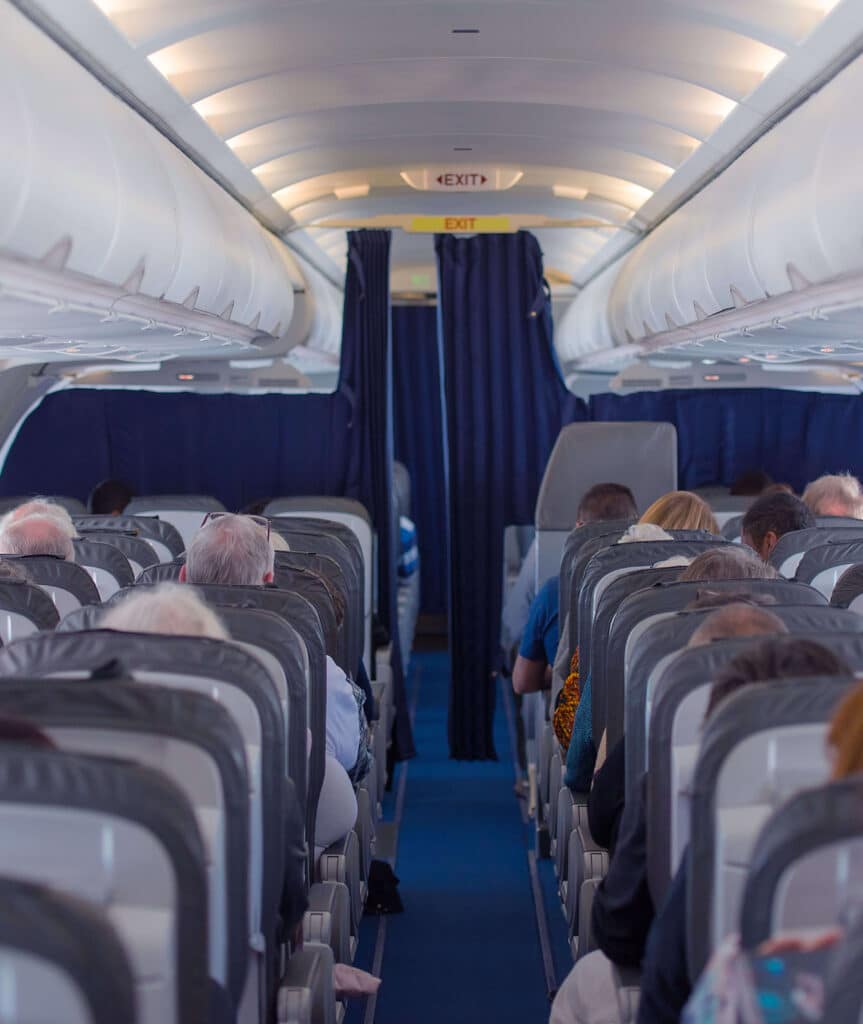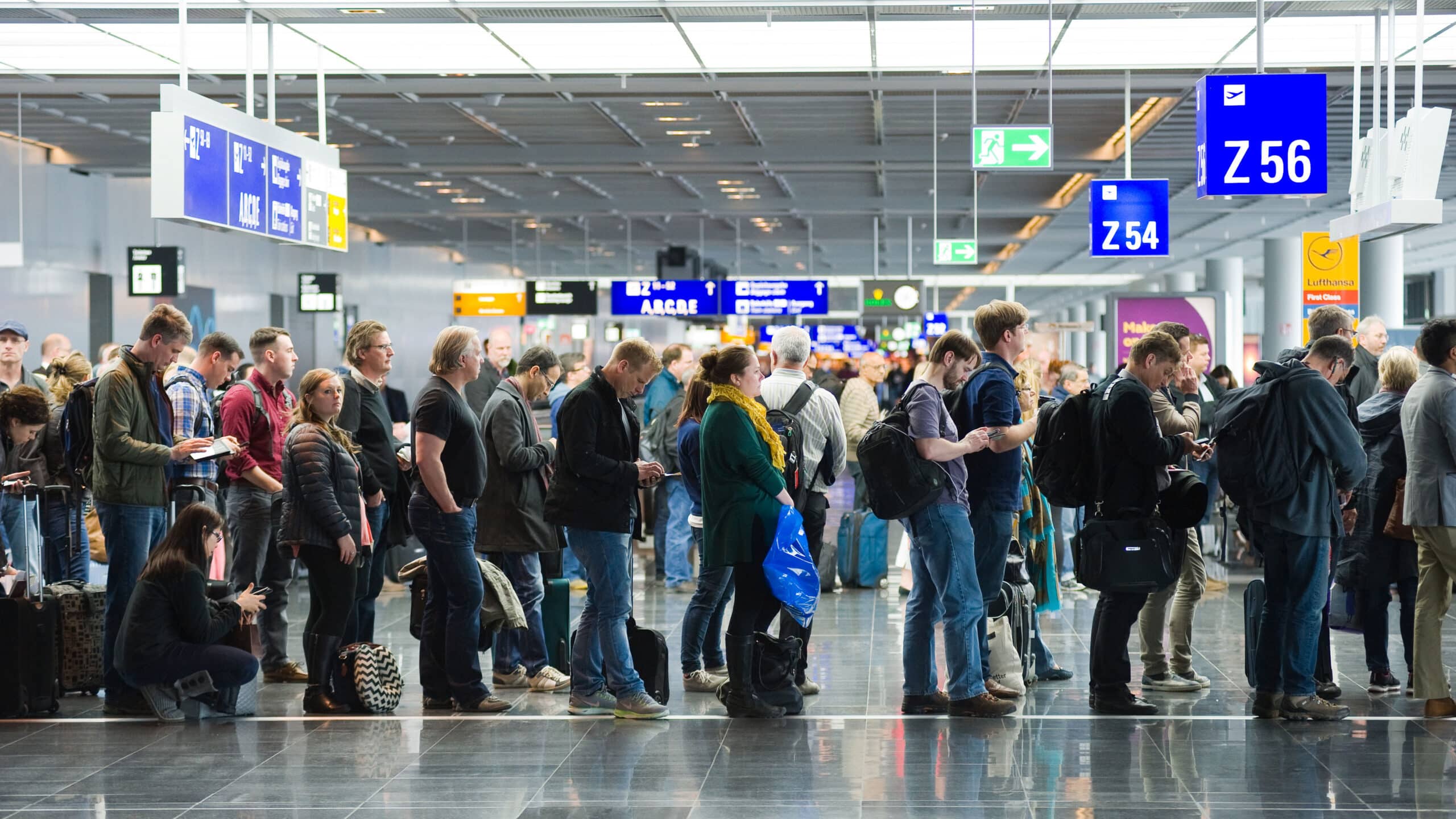Far more often, however, despite all the mandated federal safeguards, seatbelts, and preflight lectures, passengers suffer a wide variety of injuries as a result of everyday slips, falling luggage, and turbulence.
In many cases, passengers can recover compensation for injuries sustained during an airline flight, especially if the air carrier or manufacturer was proven to be negligent.

Frequent air travelers will recognize many of the items on the list of common airplane injuries:
- Items falling onto passengers from overhead storage
- Beverage carts injuring passengers in aisle seats
- Scalding liquid spilling onto passengers
- Passengers falling while walking to and from the lavatory
- Airline personnel failing to react during a passenger’s medical emergency
Frequently, passengers are injured during boarding or deplaning, too.
Falling Luggage Harms Passengers, Flight Attendants
Weitz & Luxenberg may be able to recover compensation for those who were injured at airports or while traveling on airliners. Indeed, passenger injuries are far more common than many would guess.
According to one industry report, as many as 4,500 passengers and flight attendants each year in the U.S. are injured by baggage falling from overhead compartments.(1)
Since most U.S. airlines charge passengers for checked baggage, more travelers than ever are trying to hoist carry-on luggage into tight overhead spaces, and the literal fallout has been hazardous, especially for those camped in an aisle seat, where concussions and lacerations from falling baggage are most common.
For example, if a flight attendant failed to properly close an overhead bin, and a passenger was hurt by a falling bag, the airline could be liable. However, if the design of the overhead bin was suspect, the airplane manufacturer might be held accountable for compensatory damages to injured passengers in a product liability claim.
Airlines Held to Higher Standards on International Flights
Airlines are held to higher safety standards towards passengers on international flights. Most nations have agreed to an international treaty known as the Montreal Agreement, which makes airlines liable for any accident to passengers on board or while embarking or disembarking. The passenger can sue up to a limit of approximately $150,000 without having to prove negligence by the airline or its employees. The $150,000 limit can be exceeded if the passenger can prove negligence.
One of Weitz & Luxenberg’s lawyers is the author of a book on the subject of passengers’ rights on international flights.
Injured in an airplane or airport accident? Contact us now for a free consultation.
Get a Free Case ReviewFlight Turbulence Injures Passengers
Many injuries in the air result from flight turbulence, although airlines usually are not held accountable for unforeseen, unpredictable acts of nature. However, if the airline crew was aware that turbulence was a possibility — instrumentation often signals that rough air lies ahead — then an injured party may be able to recover compensation if passengers were not warned beforehand.
In short, if the pilot was aware of potential turbulence but failed to warn those in the cabin to fasten their seatbelts, the airline could be held legally responsible if passengers are injured. According to the Federal Aviation Administration, as many as 53 passengers annually in the U.S. have been injured by airliner turbulence since 2002.(2)
There are potential travel-related hazards for airline passengers once they are back on solid ground, too.
Airports can pose risks in multiple areas, including:
- Baggage claim
- On jetways, stairs, and ramps used during boarding and deplaning
- On trams, people movers, escalators, and other airport transportation systems
- Airport construction and remodeling projects
- Courtesy vehicles used for passengers in pedestrian areas of terminals
- Wet bathroom areas, leading to slips and falls
- Jagged metal in gate seating areas
- Improperly maintained gate areas
- Noxious fumes
- Tarmac-related obstacles
- Curbside accidents
Members of Weitz & Luxenberg’s elite roster of attorneys specialize in aviation-related injuries and claims, and are available for a free, confidential analysis regarding potential suits against an airport, airline carrier, or manufacturer at (833) 977-3437. Cases are accepted on a contingency basis, which means there is no cost to the client until the case is completed.
